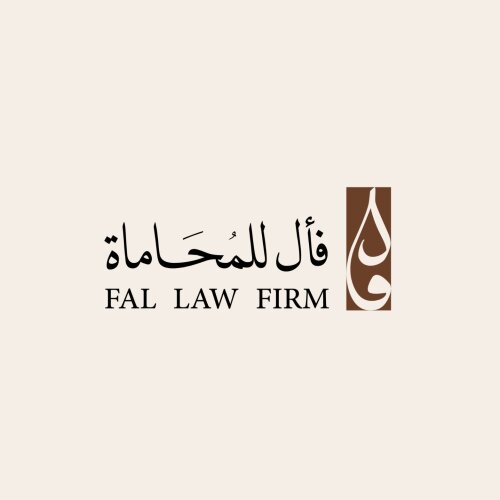Best Housing, Construction & Development Lawyers in Riyadh
Share your needs with us, get contacted by law firms.
Free. Takes 2 min.
Free Guide to Hiring a Real Estate Lawyer
List of the best lawyers in Riyadh, Saudi Arabia

About Housing, Construction & Development Law in Riyadh, Saudi Arabia
The Kingdom of Saudi Arabia, particularly the city of Riyadh, has seen significant development in the housing, construction, and development sector over recent years. These areas are governed by a number of laws and regulations. Particularly, the Saudi Arabian Ministry of Housing regulates laws and policies for housing, while construction and development projects come under the purview of the Ministry of Municipal and Rural Affairs. Over the past few years, real estate laws have been revisited with the intention of attracting foreign investments and boosting the housing sector.
Why You May Need a Lawyer
Lawyers specializing in housing, construction & development can be necessary in several scenarios. These may include ensuring compliance with local laws in construction projects, drafting and reviewing contracts related to real estate transactions, solving landlord-tenant disputes, obtaining necessary permissions for property development, addressing zoning issues, and negotiating real estate deals. Also, any disputes that arise in these sectors may require legal resolution through litigation or arbitration.
Local Laws Overview
The local laws related to housing, construction, and development in Riyadh primarily deal with contract enforcement, property rights, planning and building permits, zoning regulations, and rental laws. The Public Investment Fund Law, Real Estate Development Fund Law, The Rent Law, and The Law of the Real Estate Development Fund are among the relevant laws governing these sectors. For all construction projects, complying with the Saudi Building Code is mandatory.
Frequently Asked Questions
Can foreigners own property in Riyadh, Saudi Arabia?
Yes, foreigners can own property in Saudi Arabia but there are certain restrictions. It's advisable to consult with a legal expert to understand the legalities.
What is the process to get a construction permit in Riyadh?
The process of obtaining a construction permit involves document submission, inspections, and obtaining approval from the local municipality. A lawyer can assist in navigating through the process.
What legal provisions exist for resolving landlord-tenant disputes?
Landlord-tenant disputes in Riyadh are governed by The Rent Law. The law outlines obligations and rights of both the landlord and tenant and guides dispute resolution.
What are the zoning regulations in Riyadh?
Zoning regulations in Riyadh are mandated by the local municipality and can vary depending on the area and type of property. A lawyer can provide advice specific to the project.
Can I negotiate a real estate deal independently?
While you technically can negotiate the deal independently, it's often advisable to have a lawyer present, to ensure all legal aspects are thoroughly executed and to protect your interests.
Additional Resources
You may look into the resources provided by the Ministry of Housing and the Ministry of Municipal and Rural Affairs. They have comprehensive guides and information regarding housing and construction laws. Additionally, the Saudi Building Code National Committee's website could be a valuable resource.
Next Steps
If you're in need of legal assistance in housing, construction, or development in Riyadh, begin by finding a lawyer who specializes in this area. Ensure they are registered and licensed by the Saudi Ministry of Justice. The lawyer should have solid knowledge of the local laws and experience in handling similar cases. A hired legal professional, and their team, will assist you in complying with all legal requirements, managing litigation or arbitration if needed, and securely carrying out transactions.
Lawzana helps you find the best lawyers and law firms in Riyadh through a curated and pre-screened list of qualified legal professionals. Our platform offers rankings and detailed profiles of attorneys and law firms, allowing you to compare based on practice areas, including Housing, Construction & Development, experience, and client feedback.
Each profile includes a description of the firm's areas of practice, client reviews, team members and partners, year of establishment, spoken languages, office locations, contact information, social media presence, and any published articles or resources. Most firms on our platform speak English and are experienced in both local and international legal matters.
Get a quote from top-rated law firms in Riyadh, Saudi Arabia — quickly, securely, and without unnecessary hassle.
Disclaimer:
The information provided on this page is for general informational purposes only and does not constitute legal advice. While we strive to ensure the accuracy and relevance of the content, legal information may change over time, and interpretations of the law can vary. You should always consult with a qualified legal professional for advice specific to your situation.
We disclaim all liability for actions taken or not taken based on the content of this page. If you believe any information is incorrect or outdated, please contact us, and we will review and update it where appropriate.
















